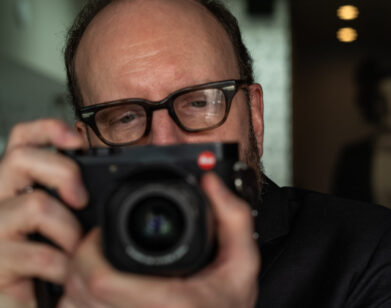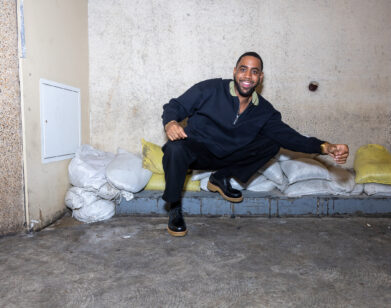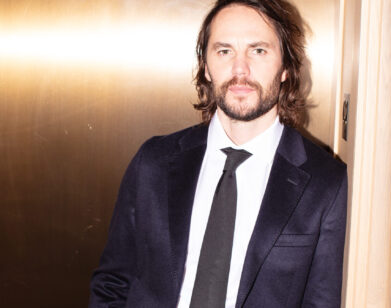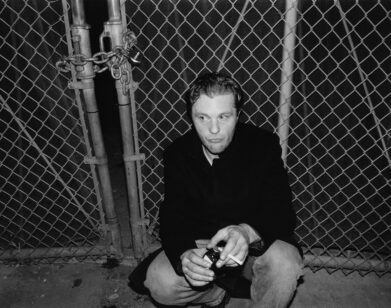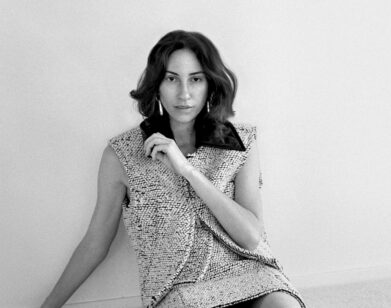arrival
Naomi Ackie Is About to Be Everywhere
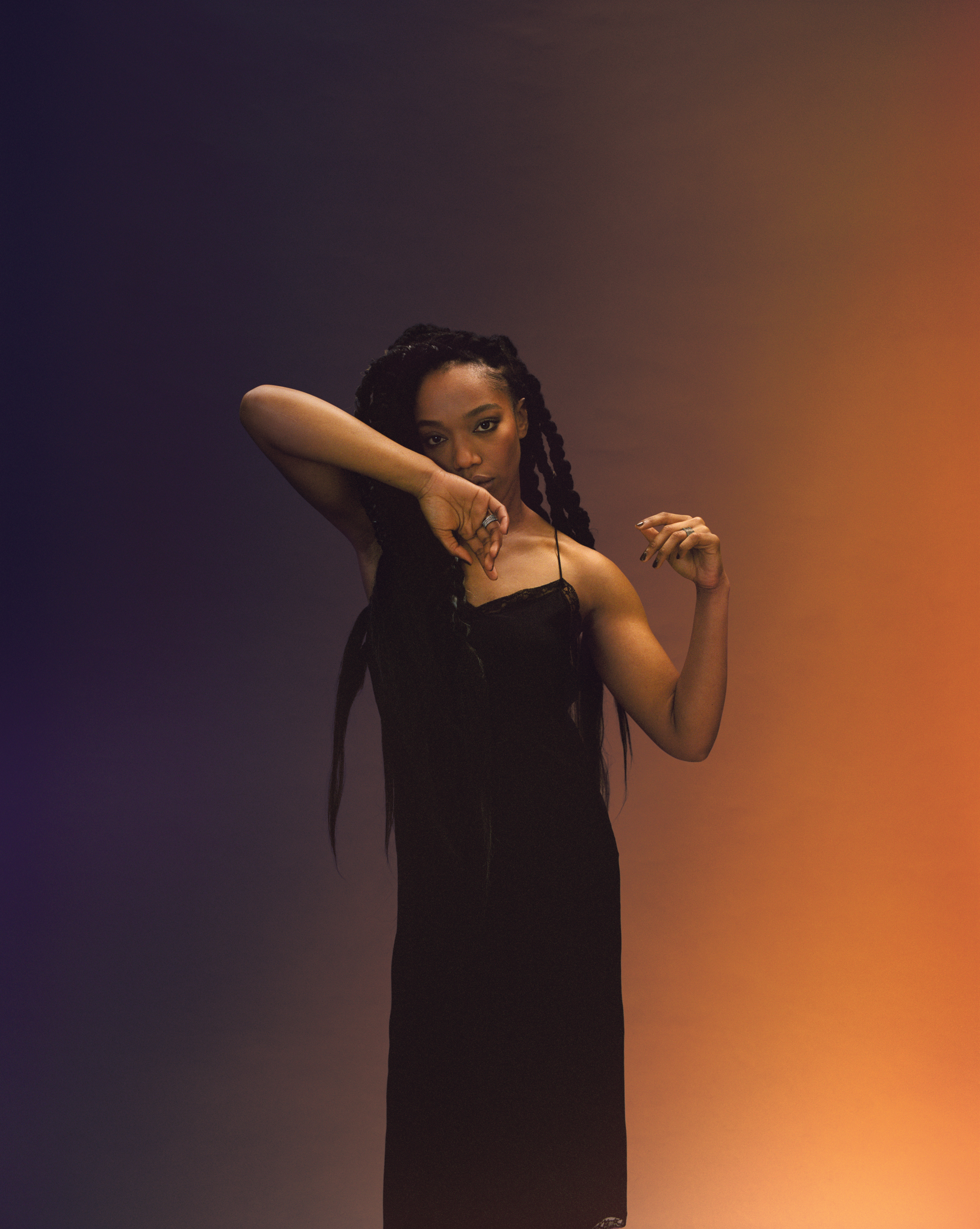
Dress (worn throughout) by Gucci. Rings (worn throughout) by Repossi.
As an aspiring actor, Naomi Ackie just wanted to be seen. She eventually was, by J.J. Abrams, who cast her in 2019’s Star Wars: The Rise of Skywalker, a movie that was seen by more people than almost any other that year. Now, as she gets set to play Whitney Houston in the upcoming biopic I Wanna Dance with Somebody, the London native tells Thandiwe Newton that there’s more to being seen than meets the eye.
———
THANDIWE NEWTON: Hello, gorgeous!
NAOMI ACKIE: I haven’t seen you in forever, Thandi— Thandiwe!
NEWTON: Thandiwe.
ACKIE: I love that you did that, by the way.
NEWTON: It was a long time coming. For years I was scared because I felt that everything that I was and that I’d done was associated with the name in the credits that had been wrongly installed. I was like, “People won’t be able to find me anymore,” and then suddenly, I was like, “I don’t care if people can’t find me,” because they’ll find Maeve, and they’ll find Sandra in the movie I just did. I’m just a conduit. The need to be seen has gone. What remains is the work.
ACKIE: I won’t lie to you, these last two years have really made me question this thing about being seen. What’s so crazy about it is I grew up with this need to be seen, and suddenly I’m in a place where I’m going to be hyper-visible, and I’m like, “No, I don’t want it!” I want to have a sense of ease about the work that I do, but it is so tangled up in expectation and pressures, and the fact that it’s not just acting. It’s everything around it and what that means. When you’re younger, you think it matters.
NEWTON: When we’re young, the need to be understood and seen is profound. I’m still working that stuff out, too.
ACKIE: It’s also a choice. Because the thing I have loved and always will love, is the work. It soothes the soul in a way that nothing else does.
NEWTON: Nothing! It connects soul and mind in a really profound way, and all the chatter disappears.
ACKIE: It goes away.
NEWTON: The chatter in the mind disappears. And to say that we aren’t our characters is horse shit. Sorry. We are hosts, and we invite our characters in.
ACKIE: And this is the thing. In my training, it was all outside body stuff, and then you throw it away. There are techniques that you can use to have an emotional effect on the body, and then it reaches the subconscious. But while I’ve been working in film more and more, I have found myself becoming really intrinsically tied to my characters while in that bubble, and it’s something I wasn’t used to. When I first started, it was very impersonal, very separate from the character.
NEWTON: That’s more stagework, because you have a beginning, a middle, and an end, and with each performance, you have a catharsis. In film, we’re nuggets of our character. But I think what I’m hearing is the need to protect your character. And in film, the character is so vulnerable, isn’t it?
ACKIE: Yeah.
NEWTON: First of all, you’re surrendering to the editor, the director, and the writer. And then we have to stop and start, stop and start, stop and start. So in the gaps between, we have to protect our character.
ACKIE: Hold onto them.
NEWTON: I think that’s why we get more attached.
ACKIE: And you have to hold the space for them. Right now, I’m trying to figure out how I want to play, oh my goodness, Whitney Houston.
NEWTON: Look, this isn’t the definitive story of Whitney Houston, because the definitive story is the one that she lived and even that isn’t real. One of the reasons why it’s so important, this story, this movie, is because so much of who she was, was hidden. Was manipulated. Was erased. Even the truth of who she was, was a mystery to herself.
ACKIE: Yeah.
NEWTON: This piece is a link in the chain to understanding her heart.
ACKIE: Her truth.
NEWTON: Her strife. What would it have been like for her to be free? And you’re going to give us that perspective, just through the fact that you’re playing her from the other side of her existence. There’s a common humanity that wants to see the truth of what happened to that woman. And it’s not just about Whitney Houston, it’s about every other Black woman in America.
ACKIE: Yeah.
NEWTON: It’s so important that we understand her pain, because when we look at the number of souls that have been lost in the entertainment industry, that died young—
ACKIE: Too young.
NEWTON: On the one hand she had it all. And then on the other hand, it doesn’t fit.
ACKIE: It doesn’t help her.
NEWTON: And that’s the issue. It’s like we’re talking about you. There are misgivings and there are fears. And here’s the other thing: We’re not surrounded by people whose concern it is to help us.
ACKIE: No.
NEWTON: When it comes to your career, you are the only one who can be the gatekeeper of your mental health. No one’s going to look out for you. We need people like our publicists and managers, because they navigate a pretty treacherous world, but even they can’t do it. We have to be our own strong stage mama.
ACKIE: This last year has been a wake-up call. When the Star Wars stuff happened, it was the first time I had that type of attention. That one took me by surprise, and I had to really work at putting my ego aside, and to not believe the hype. But I’m so glad this happened now, and not five years ago. I feel ready.
NEWTON: What you’re describing is drinking the Kool-Aid.
ACKIE: That’s it!
NEWTON: It’s a spell. I say this with all respect, but everybody who’s part of the Star Wars franchise, don’t think it’s about you.
ACKIE: No.
NEWTON: But the spell is that you think it’s about you.
ACKIE: Seriously. Now I look at this as a job, and for so long it was my identity. I clung to being an actress because I felt like it was one of the only things I had, and now that I’m in it, I can see that it’s a job. And you know what I want to do? Do my job and then live my life. I want to travel. I want to meet people.
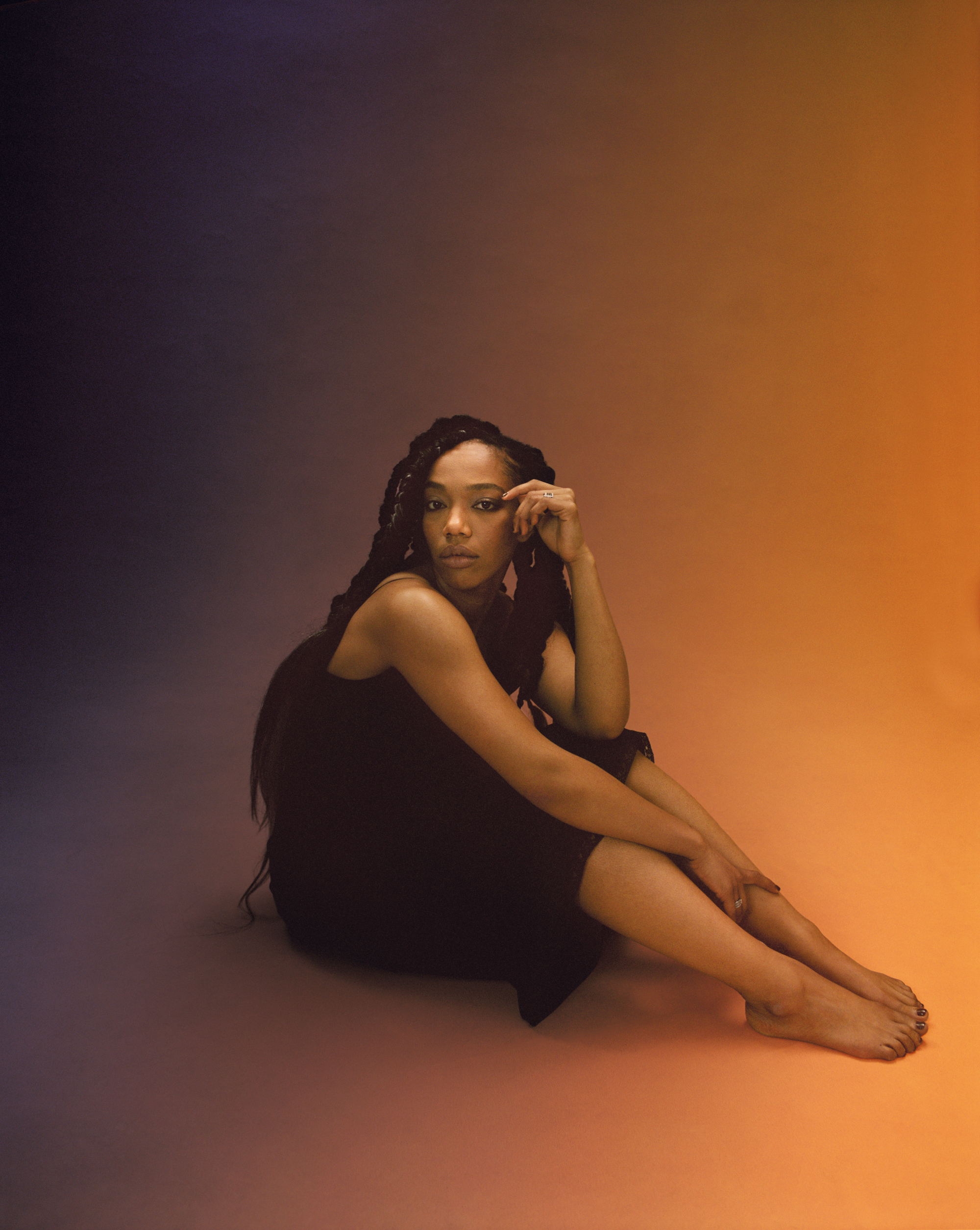
NEWTON: Speaking of which, I want to talk about when we met.
ACKIE: It was the most beautiful audition I’ve ever done. We were in Soho, I came in, and I was very nervous because I love you. I think I said it in the audition, and if I didn’t, I was shooting it out of my eyeballs. I remember having a chat with you for like half an hour before I did the monologue, and I was crying because we were talking about mothers, and you have such a nurturing energy. It was just so beautiful. You have to direct it, come on!
NEWTON: I was going to play that role, and I’d been working on it for a number of years. It’s very hard to get a movie off the ground. She’s a complicated character, and it was really important to me that she wasn’t demonized. I realized this in the later part of my life, but my work is about understanding and helping perpetrators. We’re all perpetrators to a degree.
ACKIE: Yeah, we are.
NEWTON: It depends how far we’ve been pushed or how much we’ve been hurt or lied to. And so we had that conversation before you read, and when you read, it happened in the audition. I was like, “Oh my lord, I’m not going to play this role.”
ACKIE: No.
NEWTON: No, no, no, it was so beautiful. It’s not often that I meet people who similarly want to understand pain the way I do and who want to humanize those that get dismissed in our society, so often.
ACKIE: Thank you.
NEWTON: You don’t have ego.
ACKIE: I think I do.
NEWTON: I mean, we all do, but you have a healthy ego. It seems like you don’t have that instinct to trample on others to get where you want.
ACKIE: No, I don’t.
NEWTON: There’s different ways to survive, right?
ACKIE: I think about you, Naomie Harris, and so many Black actresses who have not only stepped into the fold, but then held the door open for us to come through, and we have to do the same. When I don’t get a part and I see another Black sister get it, I’m like, “Go girl! Yes, we’re doing it!”
NEWTON: Isn’t that amazing?
ACKIE: It’s so good! We’re just like, “Everyone get in, bust down the door.”
NEWTON: Literally, I’ll email someone, like, “Oh, this is a great part.” Or I’ll say to directors, “I can’t do it, what about so and so?”
ACKIE: We’re here, and it’s so joyful that we can be here. Even acting in Master of None or I Wanna Dance with Somebody, when I was a kid, I never ever thought that I would get these types of roles.
NEWTON: Things have changed so much.
ACKIE: So much!
NEWTON: Is I Wanna Dance with Somebody the first time you’ve used an American accent?
ACKIE: Yeah.
NEWTON: Holy shitballs. I can’t believe you’ve had the career you’ve had and you haven’t even used an American accent yet. Times are changing, baby, because that’s like, if you don’t make it in America, it’s like it doesn’t matter. Fuck that shit. No more. So it’s a mark of quality. Tell me, do you feel very good about your agency? Clearly they are really wise. They get you.
ACKIE: I lucked out. They are just so supportive of my creativity. I let them know I’m originally a theater maker. I think of myself as a storyteller, more so than an actress. I’m writing now and I want to be a director. I want to tell stories.
NEWTON: You’re not going to, you don’t want to be. You already are.
ACKIE: I already am.
———
Hair: Kevin Fortune using The Inkey List.
Makeup: Kenneth Soh using Emma Hardie and Suqqu at The Wall Group.
Set Design: Samuel Overs at New School.
Movement Director: Yagamoto at New School.
Production: Concrete Rep.
Manicure: Michelle Humphrey at LMC Worldwide.
Photography Assistant: Darren Karl-Smith.
Set Design Assistant: Mitchell Fenn.
Post-Production: The Hand of God.

